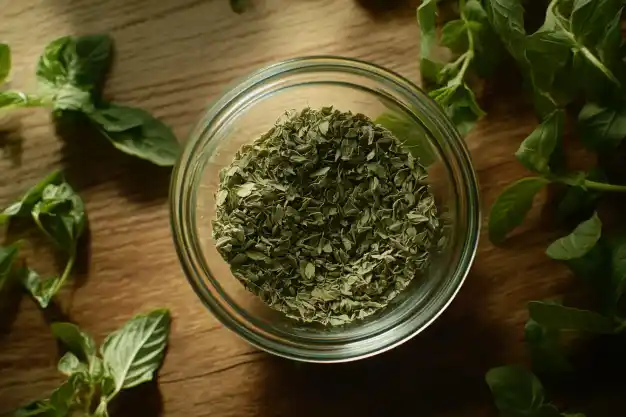Nature offers a wealth of remedies to support our health, and herbs with natural antibiotic properties have been used for centuries to fight infections and boost immunity. As antibiotic resistance becomes a growing concern, turning to natural alternatives for mild infections and preventive care can be a wise choice. This guide explores 13 powerful herbs with proven antibiotic properties, how to use them safely, and their many health benefits.
Why Consider Natural Antibiotics?
Herbal antibiotics are gaining popularity for their ability to address minor infections and support overall well-being. Here’s why you might consider incorporating them into your health routine.
For more ideas and detailed herb profiles, visit this guide to herbal antibiotics. Explore the power of nature and take a step towards a healthier, more balanced lifestyle today!
The Benefits of Herbal Remedies
- Supporting the Immune System Naturally
Many antibiotic herbs contain compounds that stimulate the immune system, helping the body combat bacteria and infections effectively. - Reducing Dependency on Synthetic Antibiotics
Overusing prescription antibiotics can lead to antibiotic resistance. Herbal remedies provide a natural alternative for treating minor infections. - Combating Antibiotic Resistance
Herbs with antimicrobial properties can serve as a complementary treatment, reducing the need for synthetic antibiotics and helping mitigate resistance issues.
Precautions and Risks
While natural antibiotics are generally safe, it’s essential to use them responsibly.
- When to Consult a Healthcare Provider
Always seek medical advice for severe infections or if symptoms persist. Herbs are best suited for mild conditions and preventive care. - Potential Side Effects and Interactions
Some herbs may cause allergic reactions or interact with medications. Always research or consult an expert before use.
13 Herbs with Natural Antibiotic Properties
1. Garlic
Garlic is a potent antimicrobial herb thanks to its active compound, allicin.
- Uses: Garlic can combat bacterial infections, support immunity, and help with respiratory issues.
- How to Use: Incorporate raw garlic into meals or take it as a supplement.

2. Oregano
Oregano’s essential oils, carvacrol and thymol, are powerful antibacterial agents.
- Uses: It’s effective against respiratory and skin infections.
- How to Use: Use oregano oil diluted with a carrier oil or brew oregano tea.
3. Thyme
Thyme is rich in antimicrobial compounds that fight bacteria and fungi.
- Uses: It’s ideal for treating coughs, colds, and sore throats.
- How to Use: Add thyme to teas or use its essential oil in a diffuser.
4. Ginger
Ginger combines antibacterial and anti-inflammatory properties to promote health.
- Uses: Ginger is helpful for digestive issues, colds, and respiratory infections.
- How to Use: Brew fresh ginger tea or add it to soups and meals.
5. Turmeric
Turmeric’s curcumin is a natural antimicrobial that supports wound healing and fights infections.
- Uses: It’s effective for skin infections and boosting immunity.
- How to Use: Mix turmeric with warm milk or water for a healing drink.
6. Echinacea
This popular herb boosts the immune system and combats bacterial infections.
- Uses: Echinacea is often used to prevent colds and flu.
- How to Use: Take it as a tea, tincture, or supplement.
7. Cinnamon
Cinnamaldehyde, a key compound in cinnamon, has potent antibacterial properties.
- Uses: It fights fungal and bacterial infections.
- How to Use: Add cinnamon to beverages, smoothies, or baked goods.

8. Clove
Eugenol in clove is a strong antimicrobial and analgesic compound.
- Uses: Clove is excellent for oral infections and pain relief.
- How to Use: Use clove oil for gum health or brew clove tea.
9. Neem
Neem is widely known for its antibacterial, antifungal, and antiviral properties.
- Uses: Treat skin disorders, wounds, and minor infections.
- How to Use: Apply neem oil topically or use neem leaves in a bath.
10. Rosemary
Rosemary’s rosmarinic acid is an effective antimicrobial agent.
- Uses: It supports respiratory health and digestion.
- How to Use: Use rosemary in cooking, teas, or as an essential oil.
11. Sage
Sage contains antimicrobial compounds that support oral health and respiratory relief.
- Uses: Ideal for sore throats and gum infections.
- How to Use: Gargle with sage tea or use it as a seasoning.
12. Barberry
Berberine, found in barberry, has significant antibacterial and antifungal effects.
- Uses: It’s beneficial for gastrointestinal and skin infections.
- How to Use: Take barberry as a tincture or capsule.
13. Holy Basil (Tulsi)
Holy basil is revered for its adaptogenic and antibacterial properties.
- Uses: It combats stress-related infections and boosts immunity.
- How to Use: Brew holy basil tea or use its essential oil.
For more herbal remedies, explore these tincture recipes to expand your natural medicine cabinet.
When to Use Natural Antibiotics
Natural antibiotics work best in specific scenarios. Knowing when to use them ensures their effectiveness and safety.
Situations Suitable for Herbal Remedies
- Minor infections such as colds, sore throats, or mild skin irritations.
- Preventive care to strengthen the immune system.
When to Opt for Prescribed Antibiotics
- Severe bacterial infections, high fever, or symptoms lasting more than a few days.
- Life-threatening conditions requiring immediate medical intervention.
Risks and Safety of Herbal Antibiotics
While herbs are generally safe, using them responsibly is crucial to avoid risks.
Possible Side Effects
- Some herbs, like garlic or turmeric, may cause stomach discomfort if taken in excess.
- Allergic reactions can occur in sensitive individuals.
Potential Drug Interactions
- Herbs like neem and turmeric can interact with medications, such as blood thinners.
- Always consult a healthcare provider if you’re taking prescribed medications.
Tips for Using Herbs as Antibiotics
Incorporating herbs into your routine can be easy and effective with these tips:
Forms of Herbal Remedies
- Teas: A soothing way to extract medicinal properties.
- Tinctures: Concentrated herbal extracts for quick absorption.
- Oils: Ideal for topical applications.
- Capsules: Convenient for consistent dosages.
Dosage and Application
- Follow recommended guidelines for each herb.
- Begin with small amounts to assess tolerance.
Conclusion
Nature’s pharmacy offers a treasure trove of remedies to support health and combat infections. Herbs like garlic, turmeric, and holy basil have stood the test of time, providing safe and effective alternatives to synthetic antibiotics for mild conditions.
By understanding the uses, benefits, and precautions of these herbs, you can harness their natural antibiotic properties to support your well-being. Remember to consult a healthcare provider for severe infections or when in doubt.

